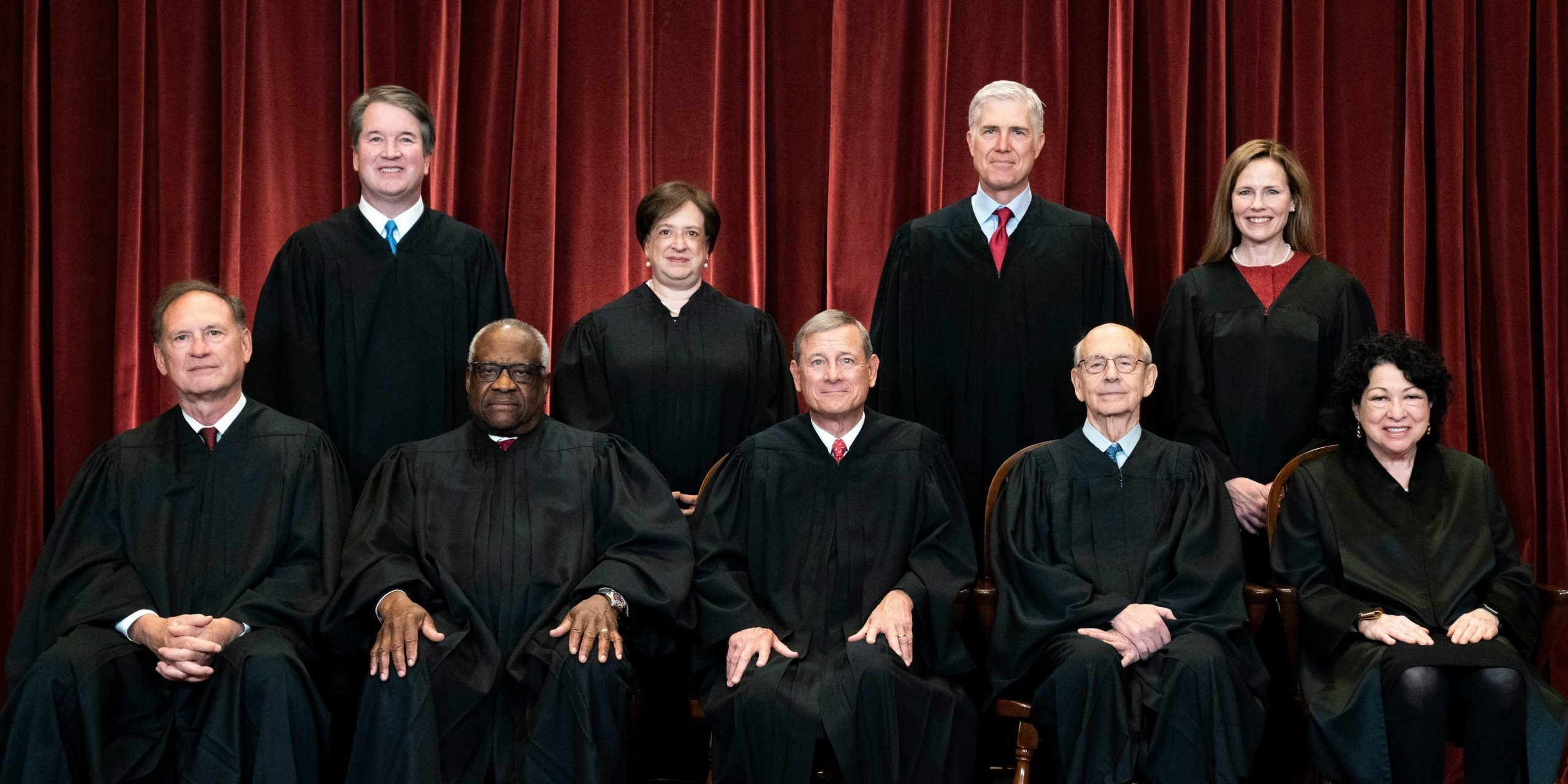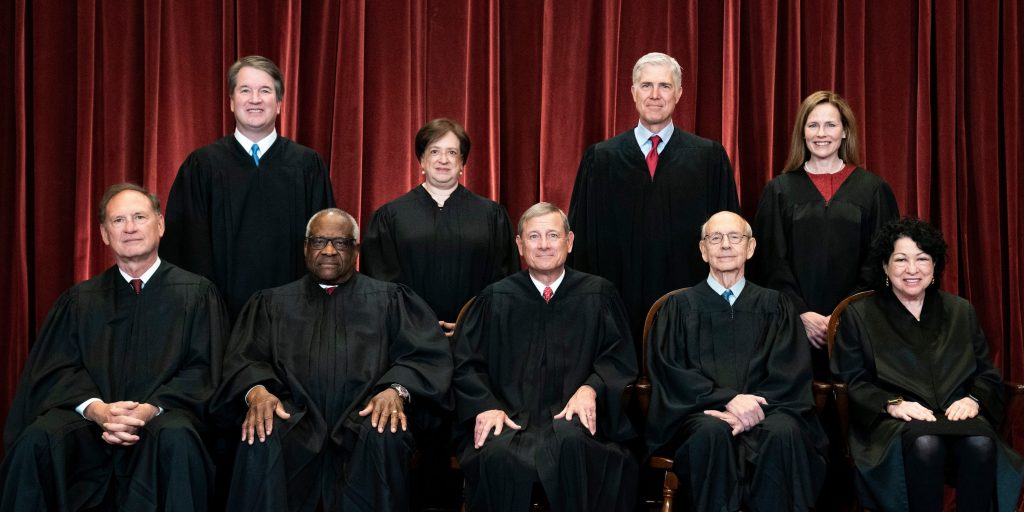
Erin Schaff/The New York Times via AP, Pool
- The reputation of the Supreme Court is sinking.
- After decisions like the Texas abortion case, the impartiality of the Court is in doubt.
- The hyper-partisanship both at and around the Court is to blame.
- Michael Gordon is a longtime Democratic strategist, a former spokesman for the Justice Department, and the principal for the strategic-communications firm Group Gordon.
- This is an opinion column. The thoughts expressed are those of the author.
- See more stories on Insider's business page.
Supreme Court Justice Amy Coney Barrett admitted that the Supreme Court is crumbling as an institution.
Earlier this month, the newest justice gave a speech lamenting how the Court is viewed as partisan and warning that her fellow justices must be "hyper vigilant to make sure they're not letting personal biases creep into their decisions." She must know something we don't.
These remarks may seem like a surprise. After all, Barrett was confirmed to the Court in a hyper-partisan process and gave the aforementioned speech at an event celebrating Sen. Minority Leader Mitch McConnell, the architect of the judicial system's rightward turn. Despite the hypocrisy, or perhaps because of it, the comments struck a chord.
In an age of Republicans challenging legitimate election results because they lose or might lose, the credibility of the Court is the next hammer to fall in our democracy, the last bastion of hope for nonpartisan decision making.
But now the Court is rightfully losing public support as the veneer of impartiality slips, and the hyper-partisanship both at and around the Court is to blame.
Partisan justice
Even as recently as a few years ago, the Supreme Court wasn't as partisan as it is now. Support certainly started eroding when McConnell and Senate Republicans refused to seat President Obama's final nominee, current Attorney General Merrick Garland.
But there have been recent decisions that were, for lack of a better term, bipartisan. Justice Gorsuch joined four liberal justices to support Native American land claims in Oklahoma. In a 7-2 opinion, the Supreme Court kept the Affordable Care Act intact.
As recently as a few months ago, Justices Kavanaugh and Roberts helped keep the eviction moratorium in place in a 5-4 ruling (though this was overturned a few months later in a separate case). Roberts, the Chief Justice who many believe is trying to keep the court as nonpartisan as possible, has often found himself siding with the liberal justices.
But, on issues important to many Americans, this facade of bipartisanship seems to be disappearing. First, the Supreme Court threw out the eviction moratorium they had so recently upheld, throwing millions of struggling Americans into uncertainty.
Then the death knell came a few weeks ago, when the Supreme Court blatantly signaled a willingness to overturn Roe vs. Wade by allowing a strict Texas anti-abortion law to go into effect. Though Roberts voted with the liberals in this decision, the other Republican-appointed justices essentially overturned nearly 50 years of legal precedent.
Given the 6-3 Republican majority, it's safe to assume we will see more decisions like this in the coming years. Though Roberts can play nonpartisan as much as he wants, the conservatives have a five-justice majority even without him and can rule on cases as they wish.
Votes, not words
The Republican strategy over many decades to focus on the court has paid off. They have turned to the court to legitimize gerrymandering and gut the Voting Rights Act, and justices like Barrett and Roberts have supported them.
Both of those justices are right to worry about the legitimacy of the Supreme Court. They just need to realize they're part of the problem of the legitimacy crisis.
Democrats have proposed many solutions to this problem, from expanding the court to adding term limits. But with those ideas stalled, once unthinkable national changes emanating from the Court are very much in play.
The Texas abortion decision is just the beginning. Roe could be overturned in full later this year. Even if Democrats passed many of the landmark bills they are currently debating, there is nothing stopping the conservative court from simply striking them down, declaring them "unconstitutional" under the pretenses of their choice.
Maybe Barrett will join Roberts in making a real effort to strike a more bipartisan tone. If she's truly worried about the perception of the Court and how some of her colleagues consider matters, she has the opportunity to do something about it. But she needs to follow Roberts with her actions and join him in crossing party lines.
It's her votes, not her words, that count. I'm not holding my breath.
